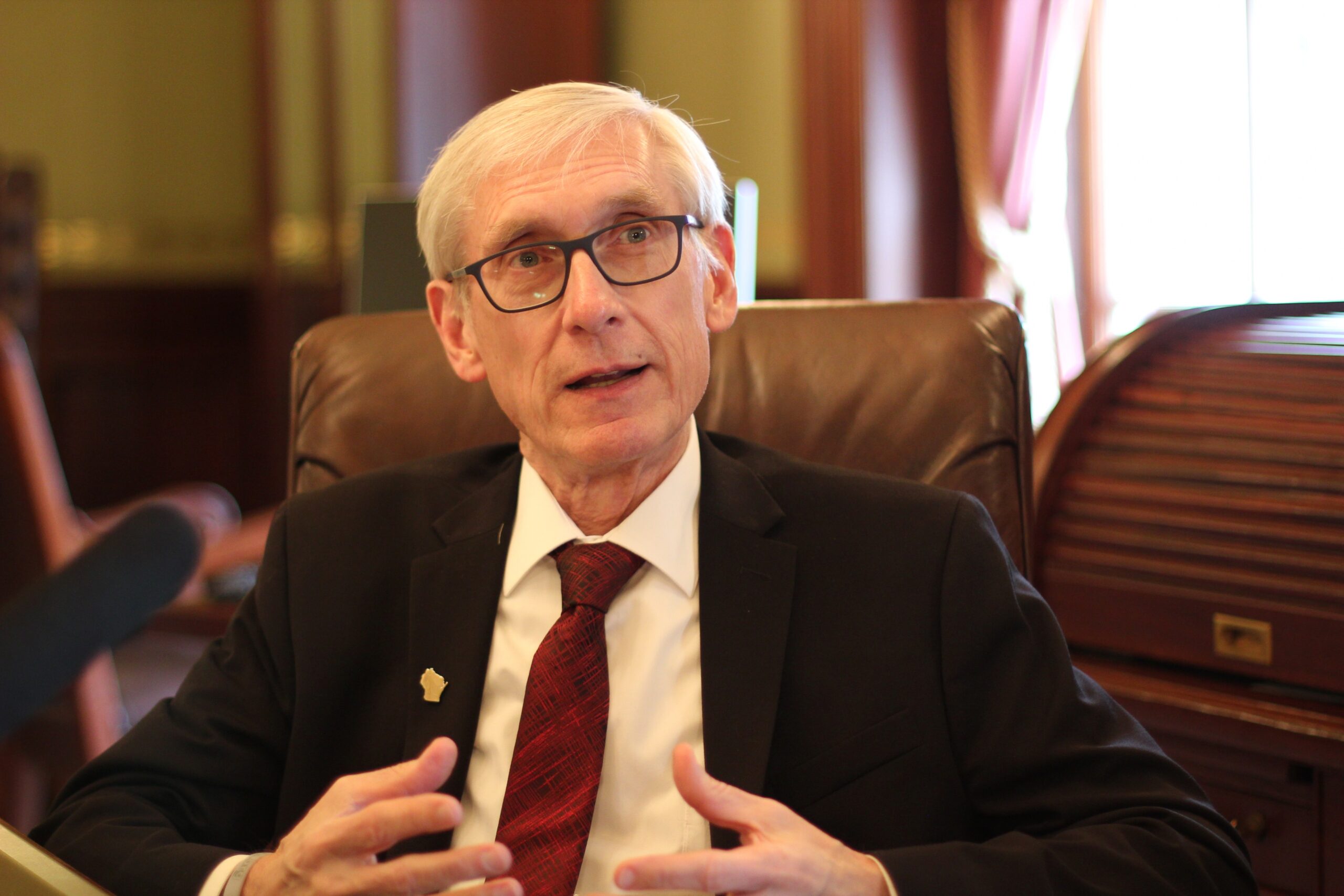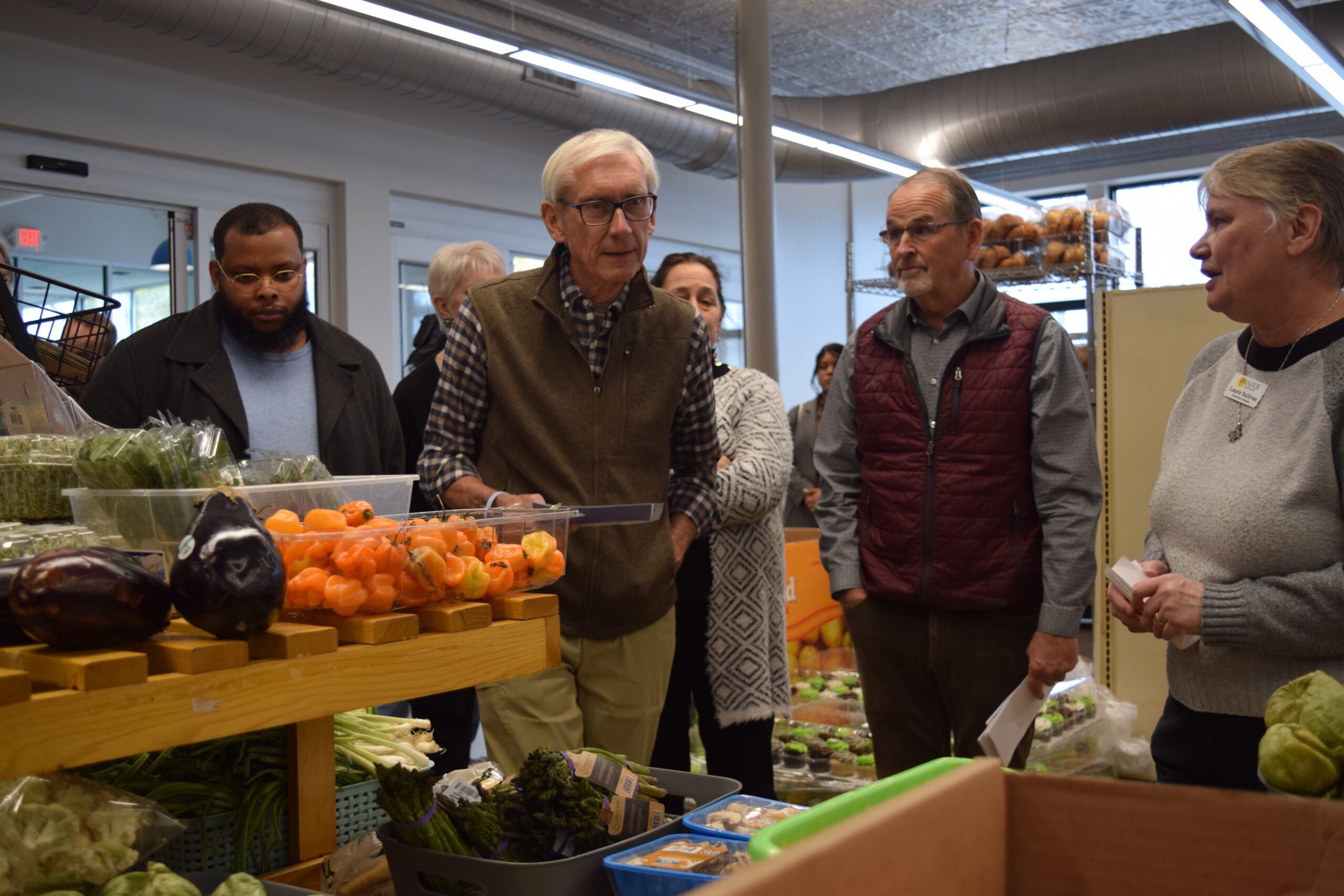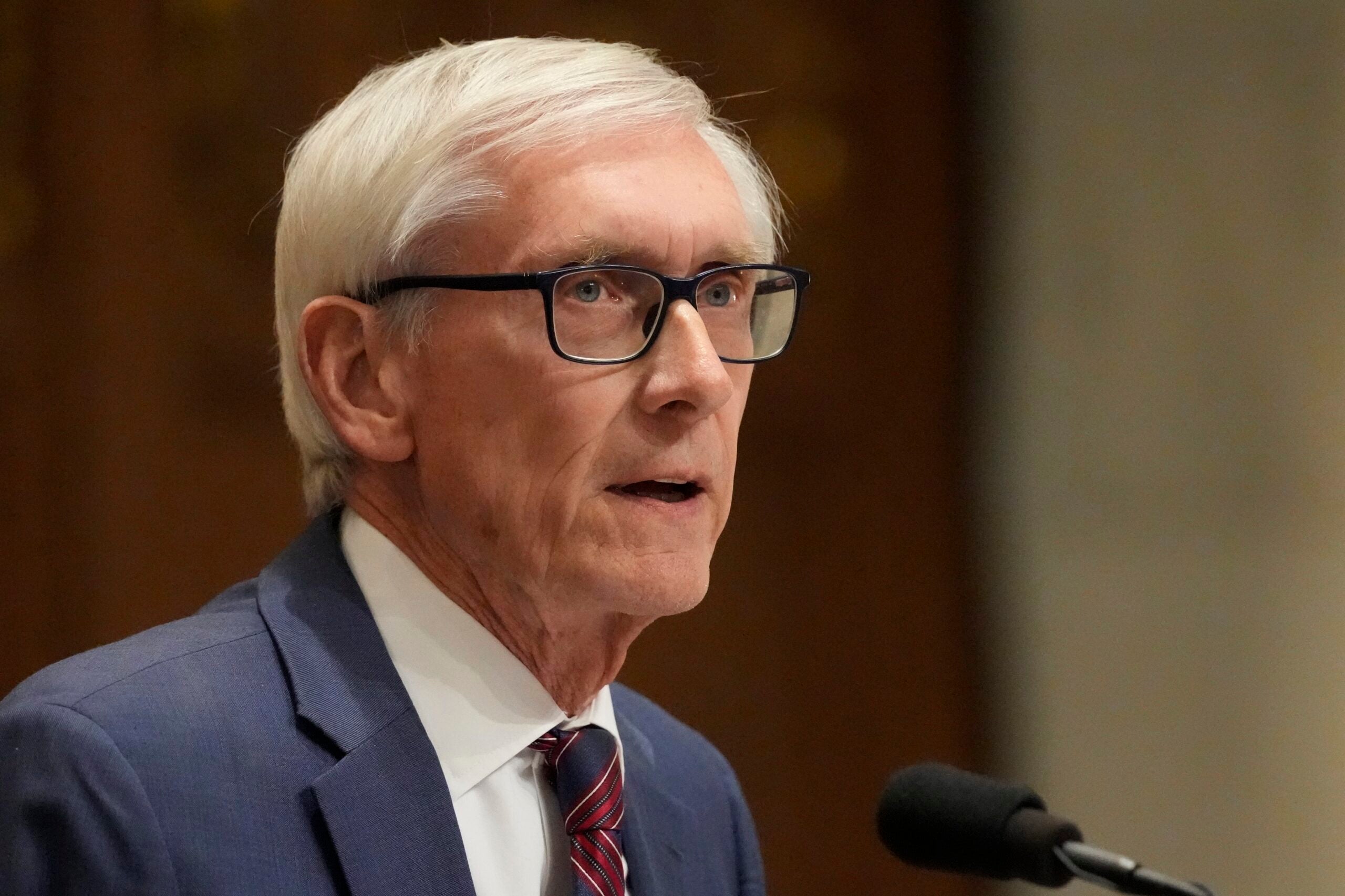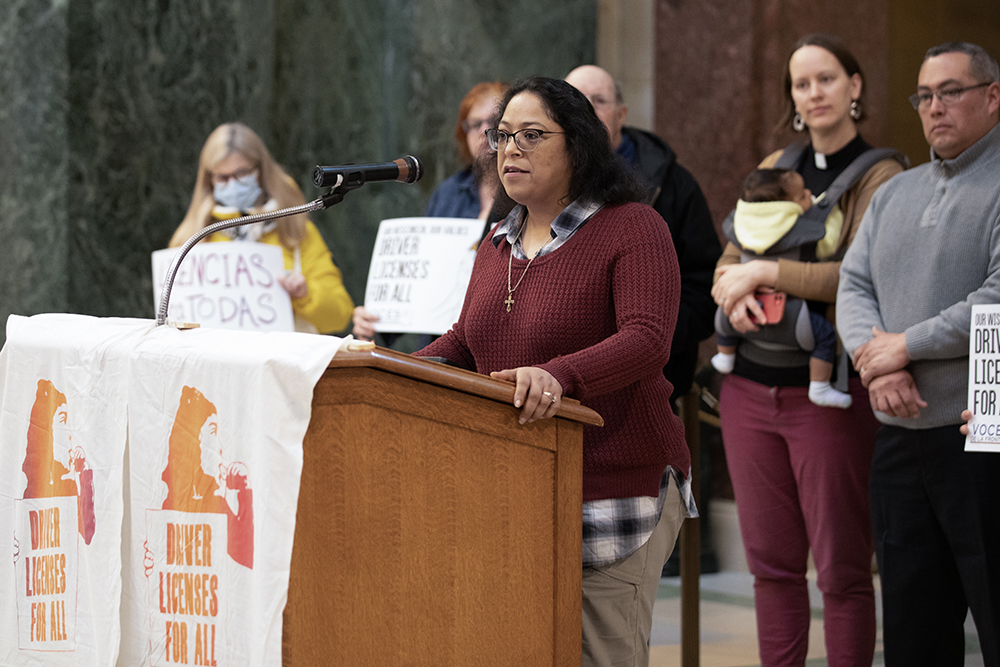Gov. Tony Evers said he plans to issue a “stay-at-home” order Tuesday that could temporarily close more businesses in an effort to slow the spread of the new coronavirus.
While details of the forthcoming order were scant, the governor stressed that grocery stores and pharmacies would remain open, along with other businesses deemed “essential.”
“There’s going to be a large number of businesses that will still remain open,” Evers told reporters at a media briefing Monday.
News with a little more humanity
WPR’s “Wisconsin Today” newsletter keeps you connected to the state you love without feeling overwhelmed. No paywall. No agenda. No corporate filter.
But other businesses might be forced to close, a move Evers said was urged by health care professionals who are worried that people aren’t taking the coronavirus seriously enough right now.
“They have significantly suggested to me that this is the best way to curb the virus,” Evers said. “That we’re not getting to the point where we want it to be.”
Evers repeatedly declined to offer more details on the order Monday, saying they were still in the works.
The announcement comes almost a week after Evers ordered all Wisconsin bars and restaurants to close everything but takeout and delivery service. The governor’s chief legal counsel said he expected restrictions on those businesses would remain largely the same, meaning takeout and delivery could continue.
While the governor wouldn’t say when precisely the new order would take effect, he said it wouldn’t result in people going to work Tuesday only to find out they have to go home.
“We will have a buffer time to make sure that everybody understands that,” Evers said.
Evers announced his plans on his official Twitter account Monday.
“People across our state are still out and about unnecessarily that are putting our friends, our neighbors, and our communities at risk,” Evers tweeted. “Please #StayHome and help us save lives.”
The governor’s decision underscored the unprecedented nature of COVID-19, but Wisconsin is hardly the first state to take the step toward restricting peoples’ movement.
Among Wisconsin’s neighboring states, Illinois issued a stay-at-home order last week and Michigan Gov. Gretchen Whitmer issued a stay-at-home order Monday. Minnesota and Iowa have yet to do so.
Evers said Friday he thought Wisconsin could avoid a “shelter-in-place” order, a comment that was praised by Republican legislative leaders, who said they believed the further shutdown of businesses was unnecessary.
But Republicans criticized Evers Monday, saying his announcement raised more questions than answers.
“The governor’s announcement has created mass amounts of confusion,” said Assembly Speaker Robin Vos, R-Rochester, and Senate Majority Leader Scott Fitgerald, R-Juneau, in a statement. “The people of Wisconsin deserve clear communications during a public health emergency.”
Evers made the announcement as confirmed cases of COVID-19 continued to climb in Wisconsin.
As of Monday afternoon, the state Department of Health Services listed 416 confirmed cases of the disease in Wisconsin, including five deaths.
Milwaukee Mayor Tom Barrett said his city would issue its own stay-at-home order to convey the seriousness of COVID-19, particularly to people in their 20s, 30s and 40s. The city’s order will go into effect at 12:01 a.m. Wednesday, Barrett said.
“Even though they may feel invincible, this is a community-wide problem,” Barrett said.
Barrett said the order can be enforced by police if necessary, but he hopes people will comply on their own.
“We’re never going to have enough police officers,” Barrett said. “We got reports over the weekend of people congregating around bars, around liquor stores and restaurants. That’s exactly what we don’t want to see happen. Our first goal is to have people comply without law enforcement being involved.”
What We Know
While the COVID-19 pandemic — and the state’s response — continue to change quickly, here’s what was known about Evers’ plans as of Monday, March 23:
- Evers’ official stay at home order won’t be issued until Tuesday, and while its exact effective date is still unknown, Evers hinted that there would be a “buffer” period before it takes effect.
- Details are still being finalized, according to the governor.
- Grocery stores and pharmacies will remain open, a point stressed by Evers’ Department of Health Services Secretary Andrea Palm. “I would encourage people not to all go to the grocery store at the same time today because grocery stores will remain open,” Palm said. Evers said other businesses would remain open, too.
- Workers providing essential care or services will be allowed to continue to travel to and from work. According to the governor, that includes “healthcare professionals, grocers, family caregivers, among other people whose work is critical.”
- “Stay at home” means “no sleepovers, no play dates, and no dinner parties with friends and neighbors,“ according to Gov. Evers.
- You can still go outside, but Evers urged people to “please stay 6 feet away from others” at shared spaces.
- “Stay at home” is another way of saying “shelter in place.” Asked about the difference between the two, Evers said he thought “shelter in place” could be misinterpreted while “stay at home” was more clear. “Stay at home means stay at home,” Evers said.
Wisconsin Public Radio, © Copyright 2025, Board of Regents of the University of Wisconsin System and Wisconsin Educational Communications Board.







